Interesting interview on SBS with Richard Dawkins last night. Stream it at this address:
http://www.sbs.com.au/dateline/story/watch/id/600352/n/Interview-with-Richard-Dawkins
I left this comment and thought I’d share it with you:
There is a God VS there is no God.. haven’t we forgotten to define WHAT is it we refer to as “GOD”???
I was a fundamentalist Christian for 20 years but now having rejected it I am getting closer to “God”.
In evolution I see “God”. In intuition I hear “God”. God is not a man in the sky (I think even fundamentalists agree with this) “He” is the personification of creative energy behind life. Atheists prefer not to personify it.
Can we please just expose the manipulative dogmas and seek truth?
I would love to hear YOUR thoughts on this stuff…
Below are personal reflections written a couple of years ago when I was searching for answers.
Monotheisms
All monotheistic religions believe there is only one God. One transcendent being that is omnipotent (all powerful), omniscient (all knowing), and omnipresent (present everywhere.)
God, most of us acknowledge, is of a complexity beyond our mind’s capacity to ever fully understand. “He” or it, is a power beyond words our language offers us, a mystery that will always surround us but which until death we will never fully solve.
God’s name
In Spanish the word for God is Dios. In French it is Dieu. In Greek Theos. In Hebrew, Elohim. In Japanese it is Goezur, in Italian Dio, Malay Alla, Latin Deus, Peruvian Puchecammae, Persian Sire, Russian Bojh, In Syriac, Turkish and Arabic, it is Allah. Just as we say cold, the Spanish sayfrio, and Japanese samui, all refer to the same thing. When Muslims call out to Allah, they are calling out to God, but in their language. If they were to pray in English, they could call Allah God, and if we were to pray in Turkish, we would call God Allah. Different words for God doesn’t mean we pray to different gods.
God is on my side
The words Allah and God cognate two very different images of God in our minds, but why? It is due to the fact that most people in Turkey, Syria and Arabia, have been brought up Muslim, and most people in England, America and Australia, brought up to be Christian, that Allah is thought to be the god of Islam, and God, the god of Christianity. But this is wrong, both words mean God. I’m not saying that the Muslim God and the Christian God are one and the same God. No. They are two different civilizations attempts to know the same mysterious power behind life, of which both there is only one.
Islam and Christianity are based on different interpretations of someone else’s God-inspired teachings. The discrepancy between the two religions comes down to the credibility Mohammed and Jesus, the credibility of the writers who documented their stories, the credibility of their followers that continued to spread their words, and the credibility and accuracy of theologians who have interpreted these narratives into the creeds many people so strongly believe today.
Different interpretations of God’s will for different people at different times has led to each religions’ different beliefs about how to communicate with God, our life’s purpose, ideologies about how society should be run, what constitutes good morals etc, and God’s eternal plan for who goes to heaven and who goes to hell. Aren’t these differences simply reflecting different civilizations in different times focusing on this one transcendent power behind our existence: worshiping it, praising it, praying to it, being inspired by it, wanting to please it and gain protection and direction from it? Surely if we can just recognize this common goal, and humbly admit our own nature as fallible humans who cannot fully comprehend this power, we have a stronger base to think through our own conceptions and ideas about God, and learn from each other’s?
Dear Christians
Does it really make sense that your God would only reveal himself to the Israelites, one small group of people who exited Egypt around 3000 years ago? What about all the people that lived before the Israelites? What about the Sumerians and Egyptians, the Indian and Chinese, the Indigenous peoples of Americas and Australia? Does God not care to have a relationship with these people too? Why would he bother creating them then?
Does it make sense that the only way to have a relationship directly with God, is by believing in Jesus? Does it really make sense that God would make the condition of entering a relationship with him be based on accepting a number of statements only available to a small percentage of the population? Is God not powerful enough to forgive without creating aformula of sacrifice and forgiveness? Wouldn’t “he” want to have a relationship with all “his” creations?
When you think of God, what image come to mind? A king? A judge? A man or woman sitting on a throne in a golden castle? This is an image but is this what you really believe God is? Does God experience days, and time? Time on earth only exists because of earth’s rotation around the sun and on its axis, so how is it in heaven? Is there a past, present and future in Heaven? Does God sit on his throne reminiscing the past – those good ol’days when Lucifer was his right-hand angel? Does God think back fondly to the times when his creation was perfect, the times when we were his obedient human creations that had not yet sinned?
Does he think about what went wrong, and wonder how he could have allowed himself to be so betrayed? Does he wish he’d used his omniscience and omnipotence to stop it? If he is omnipotent then can’t he do that now? I know we explain this by saying he wanted it to happen, because he wanted us to have choice, does that mean he is disappointed in our choice? But, can you imagine God of most power, actually feeling disappointed and sad? If you were all powerful, would you really take things so personally? Or would your ego be quite ok without needing other’s praise and acceptance?
What would the point be for God to set up such a grand narrative: throwing Satan out of heaven, planning a battle between good and evil whereby we, his special human creations, must choose which side we want to be on? All this bother when he is already “all-knowing” and knows that in the end he will win – and those that chose good will be saved and live for eternity with him. Why did he do it? Why would he bother? Just so that he could have friends? Weren’t the angels his friends? Is it because he was bored?
I guess eternal life of peace might get boring. In a place free of conflict – a place of pure peace and tranquility where every day you feel safe and happy – I think I too would eventually pick a fight with someone, fire things up, just make life interesting again… Could the narrative of a battle between Satan and God be a mythological representation of this ongoing conflict between yin and yang? Did “God” “create” each of these opposites simply in order to write a more exciting story fo the world? The universe is constructed with protons and electrons, which combine together in different combinations to create different elements which combine to create different forms of matter. + and -. It’s like binary code of a computer 0s and 1s. Necessary opposites. It is the balance of opposites that make up for me the wonder of life.
“God” created this myriad of experiences available to us, so that life can be experienced to the full, in whichever way we want. God is more creative, clever and powerful than we give him credit for. In my mind “He” is not some ego maniac king demanding praise and creating hard-to-belief formulas with the requirement for us to believe it, so that when we die, we can meet him and become his servants in heaven. This image sounds like something people living in these type of conditions on earth would have imagined. Think about it, does it really make sense?
How can we believe God is omnipotent if we believe Satan to be a serious threat to our salvation? How can we believe God is omniscient, knowing already who will be in heaven, yet simultaneously believe we have free choice? The only way this can make sense to me is through the omnipresence of “God” when freed from human-constructed conceptions of “His” form.
How I imagine “God”
If God is present everywhere then isn’t “he” in every cell of our body and every spec of matter in our universe?And hence if we are in God and God is in us, can we not derive that the universe IS God. God may be bigger than the universe too, we can never know what’s outside our universe, but we can know that God is everythingin this universe.
I see “God” in the middle of “His” process of self-creative evolution. We humans might even be God in his most creative and dynamic expression to date. More recent developments in this creation process have led to an individualistic self-awareness, whereby we have developed complex minds that construct and deconstruct the realities around us. This is a magnificent part of God’s creative expression, yet in the process we have taken an interesting turn. We are born into a world that teaches us we are separate: separate from each other, separate from nature, and most important, separate from God. This separateness has led to creation of an ego. Our ego has positives and negatives. It allows a greater breadth of feelings, yet is also the cause of loneliness, fear, and confusion. Through self-analysis we have lost sight of what we are and what is our purpose. Our separateness feels like an eternal separateness, and most of all we fear what will happen when we die.
Our purpose in life, as an expression of God, is to continue our collective godly process of creation. To do this we must reconnect with our true self, this means listening to the voice deep within each of us and taking comfort in the fact that all of us are separate yet one. We are all expressions of God, and together we are God. God is you, me, humanity, all life, and the entire universe and beyond – we are all God.
When we realize this, we will realise that peace is possible. This paradigm shift is consistent with all religions, and sciences. Ultimately we are all matter, and in a reality that mind-body-spirit between man, animal and plant, all connect in ways we do not yet understand. Developments in quantum physics, in discovering your intuition, connect to Buddhism, connect to mysticism, connect to the teachings of Jesus, Mohammad, Abraham, Buddha and all the other spiritual gurus of the past and of today.
If we open our minds to an image of God that is not the symbolic one we have grown up with, if we recognise our interpretations are fallible, if we accept that “God” is an incredible entity of which we are a part of even if “He” is not a person and exists in a form that no words can describe – then I think we can truly discover a relationship with God/Our Universe, that so many wise teachers have described.
If we wish to forego our egos, we can return to the oneness of God – just as Buddhists do when they meditate into blissful enlightenment. But egos are also a source of pleasure and competition which spurs creativity. Maybe egos are also good, as long as it’s kept in perspective of the oneness which we are more deeply a part of. I don’t know – what do you think??? (comments??)
Ego or no ego I believe we are simultaneously God’s creation and God’s creators, and we have a purpose: to create! This means we can transform this world and universe to the one we want it to be. How? Well we can start by reconnecting with each other, increasing awareness of our egos, and designing a vision, a blueprint, of the reality we want to create.
Oh, and if you are interested in the comment from Pat Robertson (a leading evangelical in the US) that said Haiti experienced the quake because of their “pact with the devil”, I found the snippet from his interview on youtube:
[youtube]http://www.youtube.com/watch?v=S5nraknWoes[/youtube]
Arghhhhhhhhh!!!!!!!
And when it comes to Atheists – don’t you think they have a right NOT to personify this power if they don’t want to? What difference should it make to anyone else if some people personify it while others talk about it in the scientific terms they decide to delegate to it? Richard Dawkins may be a little derogatory in his approach but he makes a good point – at least he is going about his pursuit of truth through words not war.
When it comes to the crunch we are all incredibly complex beings inside an incredibly complex universe constructed by an incredibly powerful creative energy – personified as God or described as a series of Supernovas – aren’t we all just using different words and conceptions to describe the same thing?
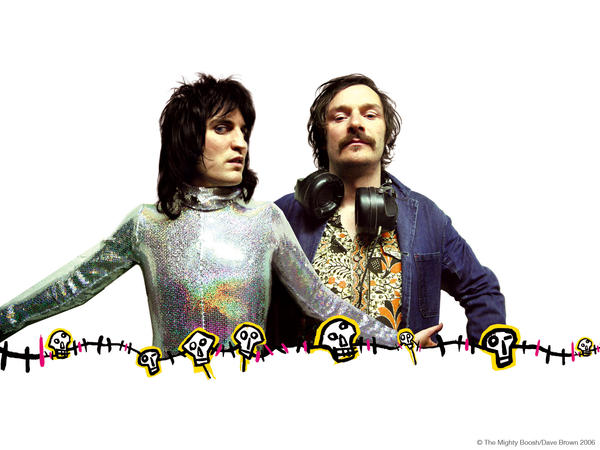
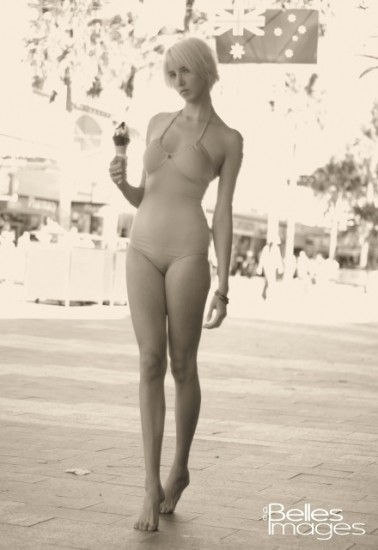
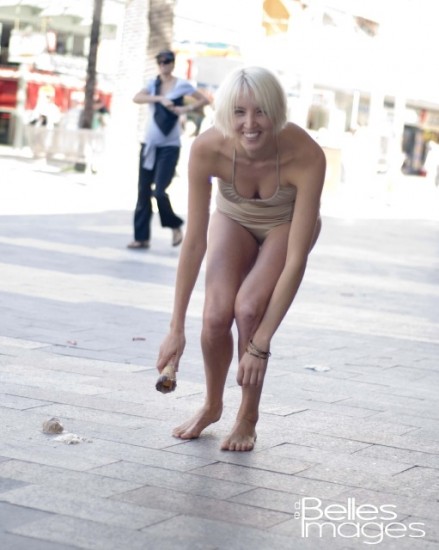
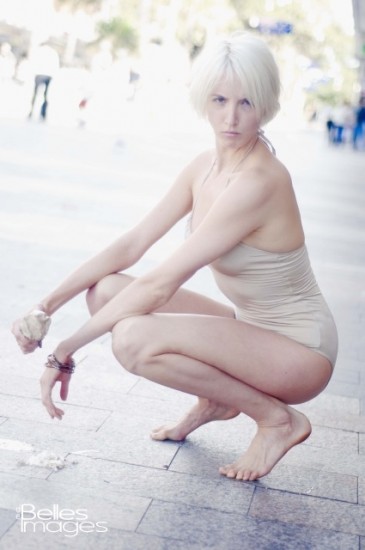
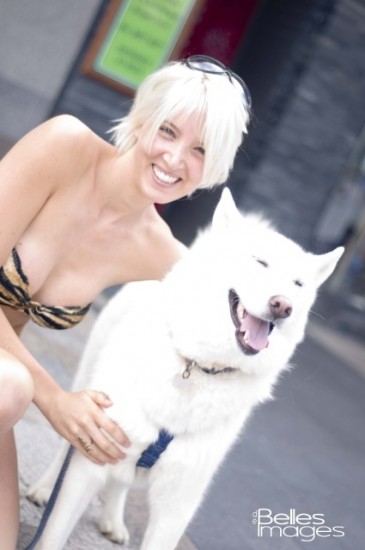
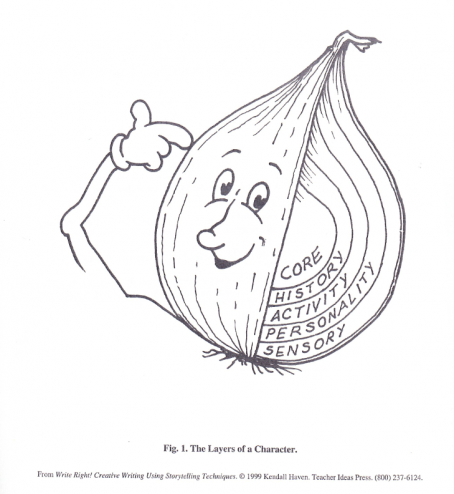 As we walk through time our view of the world is constantly in flux. One day I think this, the next day I think that – nothing is ever static. There is always something new to learn, and that new thing might well knock down a wall that previously blurred your view.
As we walk through time our view of the world is constantly in flux. One day I think this, the next day I think that – nothing is ever static. There is always something new to learn, and that new thing might well knock down a wall that previously blurred your view.